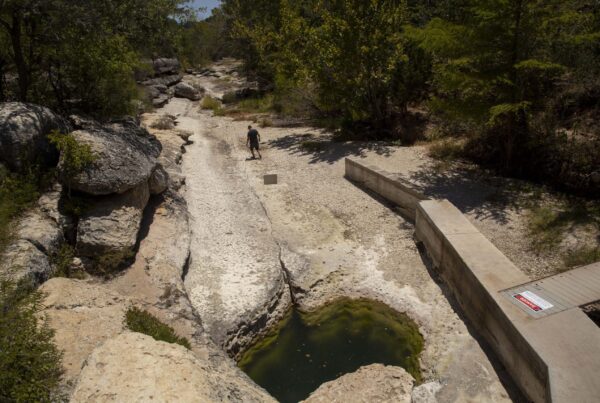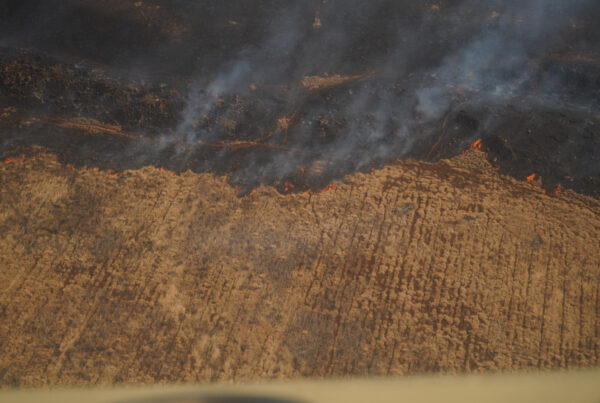A judge in Montana handed down a landmark ruling earlier this week in favor of a group of young plaintiffs who had sued the state over its responsibility for climate change.
At issue was the state’s failure to consider climate change when approving fossil fuel projects. Montana’s constitution guarantees its residents “the right to a safe and healthful environment.”
The first-of-its kind victory almost certainly means that there will be more lawsuits like this filed – but whether the plaintiffs have a chance to prevail will vary widely from state to state.
Vanessa Casado-Pérez, a law professor and research associate professor of agricultural economics at the Texas A&M University School of Law, spoke to the Texas Standard about the lawsuit’s impact and implications for Texas.
This transcript has been edited lightly for clarity:
Texas Standard: I’ve been hearing a lot about these young people. Did you anticipate a victory for these plaintiffs in this widely talked-about case?
Vanessa Casado-Pérez: Not really. So, there were two other cases where these green amendments have been successful. One in Montana from the late 90s and another one in Pennsylvania. However, this was a climate change case, while the previous ones were not. So this is what sets it apart.
I think we’re hearing a lot of folks saying that they do expect others to file similar suits around the country. Do you anticipate that yourself?
Certainly. But there are only a few states that have a green amendment on their constitutions. Texas is not one of them.
When you say there are only a few states with this green amendment, you’re talking about specifically the language that guarantees their citizens to “a right to a safe and healthful environment.”
Yes. Pennsylvania, Montana, Hawaii, Massachusetts and Illinois are the ones that have some language in the Constitution that grants a right to a clean environment.
Unlike Montana, Texas doesn’t have one of these so-called green amendments, which guarantee the right to a safe and healthful environment for its citizens. And then, of course, we also don’t have these environmental impact statements being issued by the state the way that Montana does. Are there implications for Texas here?
So it’s difficult to think that a case like this, based on the right to clean environment, will be brought in Texas. This recent victory, as well as the trial coming up, has brought a renewed interest in these green amendments. So we may see them in other states.
There was a proposal introduced in the last legislative session in Texas that went nowhere. That included a very robust right to clean environment. We may not see a case brought on those terms of environmental rights in a state like Texas.
» GET MORE NEWS FROM AROUND THE STATE: Sign up for our weekly ‘Talk of Texas’ newsletter
This has got to be, I mean, right off the top, a huge experience and quite the victory for the young people who are suing here. And in a sense, they’re sending a message about their future. And it’s something that’s gotten a lot of sympathy and support from folks across the United States.
But what exactly do they get from that? It’s certainly a symbolic victory, but is it more than that? And in fact, is there a way for the judge to compel Montana to make changes in its policies?
So the judge said even before the trial that he does not have the power to order the state to create a remedial plan to address climate change. The claim here is that the law in Montana that greenhouse gas emissions should not be considered when analyzing the environmental impact of projects was unconstitutional. So to an extent, this case treats the right to the environment as a negative right, things that the government cannot do. But it’s not clear that it can impose duties as to what the government can do.
However, I think we have to recognize this victory for several reasons. One is the judge has a 103 opinion that goes over the harms that climate change is causing the youth, even recognizing the mental health effects of climate change, the anxiety about nature disappearing, about natural disasters coming, you know, and recognizing that they have a standing – which is always tricky when it comes to climate change – that says there is an injury, that the injury’s caused by the state.
And in any event, the fact that this case was coming already brought change into Montana regulations because the Montana Legislature repealed the state policies promoting fossil fuel extractions, I think it was a couple of months before the trial began.














